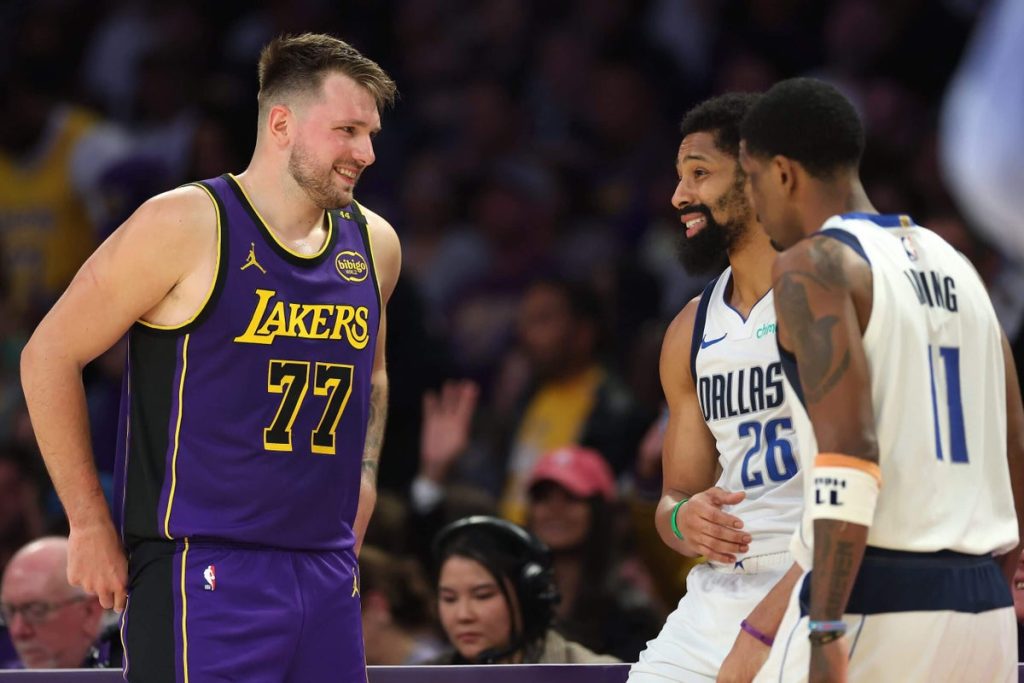LOS ANGELES — Nico Harrison was well aware of the chants.
As the Dallas Mavericks general manager, his decision to trade Luka Dončić could be regarded as one of the most significant missteps in NBA history. Dressed in a stylish blue suit for the reunion game at Crypto.com Arena, he couldn’t help but face the sarcastic appreciation from the fans.
“Thank you … Nico!” echoed from the Luka Nation multiple times during the Los Angeles Lakers’ 107-99 victory.
In a light-hearted moment after the game, I inquired if he responded with “You’re welcome.” Harrison, smiling, simply replied, “No,” before making his way out.
Harrison, 52, a former Nike executive, is known for his strong convictions. Once he solidifies his vision, he is focused solely on making it a reality. In the case of Dončić, whose perceived poor habits influenced this contentious decision, it meant trading a player widely regarded as a future Hall of Famer for the older and injury-prone Anthony Davis, who became the centerpiece of the trade.
Those familiar with Dončić’s final days in Dallas aren’t shy about criticizing his professionalism, labeling him as lazy and highlighting his ongoing weight struggles. There are concerns regarding his lifestyle choices that have been reported extensively since his teenage years playing in Europe. Many predict a decline, citing a health history that may spell trouble for him in the foreseeable future.
Harrison’s background as a trusted shoe representative for Kobe Bryant might have influenced his perception of Dončić not embodying the “Mamba Mentality.” His close relationship with Davis from their Nike days and the belief that championship contenders require standout defensive players played a crucial role in his decision. According to insights from Tim Cato of DLLS and other sources, Harrison’s short-term view on his general manager role may have contributed to his dissatisfaction with Dončić’s growth.
However, those outside the Dallas organization—including front office executives and scouts dreaming of acquiring a talent like Dončić—see the reasoning behind the trade as flawed. In the NBA, managing egos is crucial, and transcendent talents like Dončić should be nurtured. Previous greats like Allen Iverson and Magic Johnson faced scrutiny but were still supported due to their unmatched skills.
As Dončić shines with the Lakers—recording his first triple-double and showing promising chemistry with LeBron James—doubts linger. While former teammate Kyrie Irving praised Dončić’s talent and the burdens he carried during their Finals run, he remarked on how unnecessary the criticisms against him can be. Mavericks’ owner Patrick Dumont and majority owner Miriam Adelson might want to reflect on this advice, recognizing that the decision for the trade ultimately fell under their approval.



